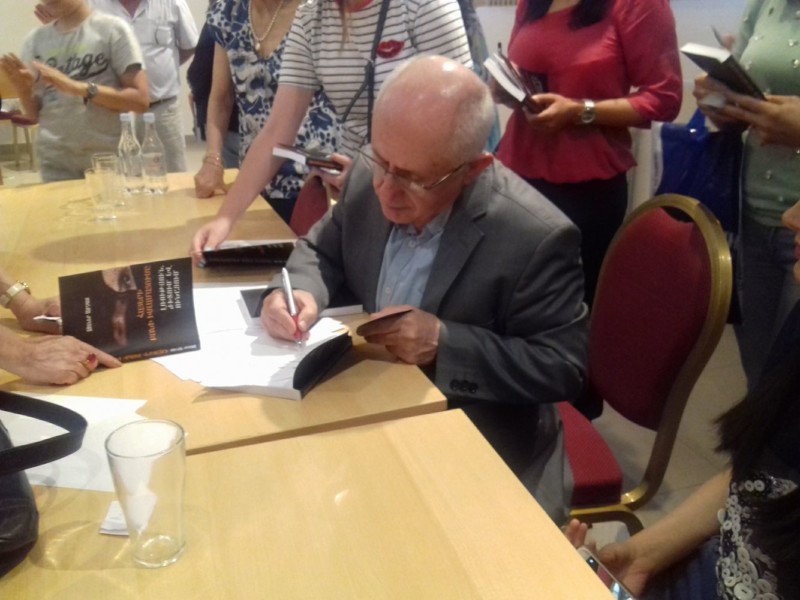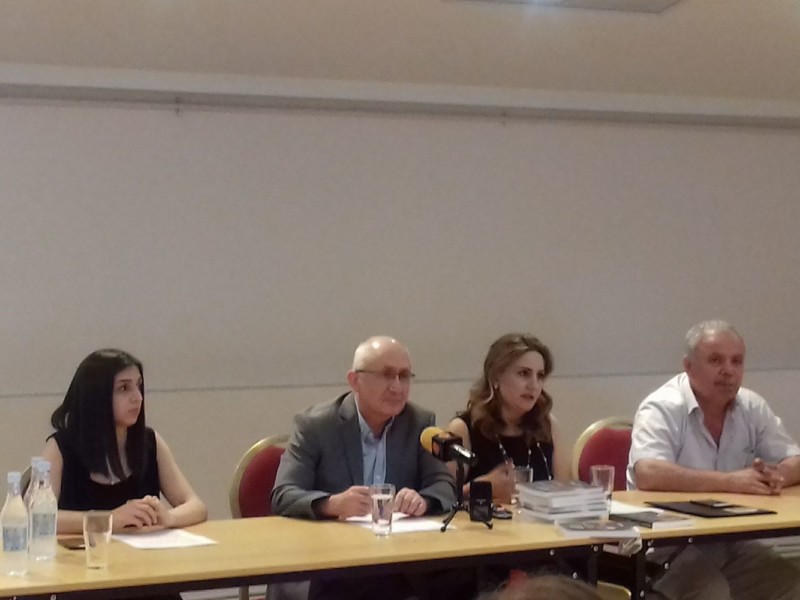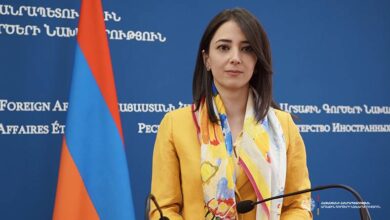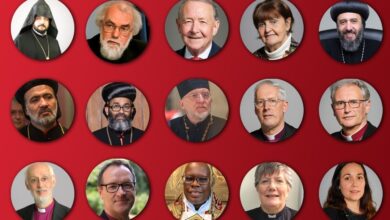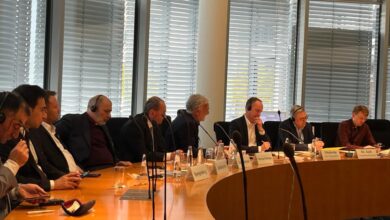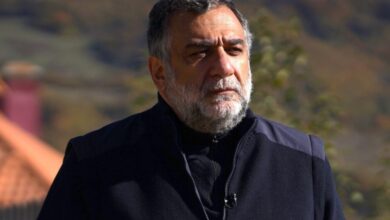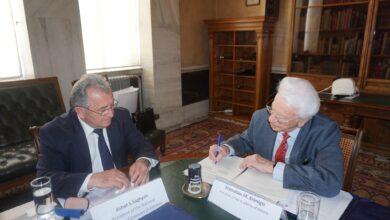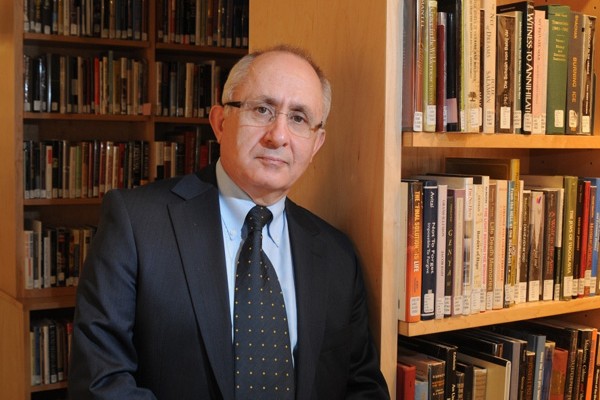
Turkish historian Taner Akcam, who has been studying the Armenian Genocide for decades, says he came across the topic by coincidence.
“When I was studying at Hamburg Institute of Social Research, my first topic was history of torture in the Ottoman Empire. This is how I started reading about the Abdul Hamid period massacre and other events related to the Armenians in the Ottoman Empire, Mr. Akcam said in an interview with Public Radio of Armenia.
“When I was reading I was not even aware there were Armenians living in Turkey. During that period, when I was researching on the history of torture, our institute launched a big project on Nuremberg Tribunals, on whether Nuremberg could be taken as a standard for all macro-crimes. My project was almost coming to an end, and I was looking for another topic to research, and I thought I might maybe do something on the trials in Istanbul, because I knew there was a relation between Istanbul military tribunals and Holocaust. I made the proposal without knowing how complicated the topic is. The institute accepted my proposal. And so I started working on Armenian genocide and it never ended,” he said.
When in Turkey, as any common Turk and as a progressive leftist young university student, Taner Akcam knew there happened something in the past – Turks killed Armenians, Armenians killed Turks, but thought it was way back and there are more important problems to solve.
“Another important perception I had was that Turkey was actually established in a fight against great power, imperialist power, and mainly Armenians and the Greeks were with these colonialists to partition our country. So this was my mindset. Over the years during my research I changed this perception, although this was difficult. This is what I have been writing since then, that Turkey actually should face own history and acknowledge these wrongdoing,” Taner Akcam said.
Mr. Akcam does not see a perspective for Turkey to recognize the Armenian Genocide any time soon.
“Turkey is now in its winter again. Turkey is back up to its traditional policies, this is the original setup of the Turkish Republic, to deny the Armenian Genocide. There was an opening between 2002 and 2012, but after that Turkey went back to its traditional policies, because the ruling Justice and Democracy Party (AKP) and President Recep Tayyip Erdogan started to ally themselves with the traditional force in Turkey – the bureaucracy and the military, who established the Turkish republic and who are the core of the denialist policy,” the historian said.
He does not expect anything to change in Turkey regarding the Armenian genocide after the elections expected on June 24. According to him, only a small Kurdish party with about 10 percent support recognizes this as a fact, while the remaining political parties vehemently deny the Armenian Genocide. “Even if the opposition comes to power, they won’t change this traditional denialist policy.”
As for international recognition of the Armenian Genocide, Mr. Akcam says only recognition by the United States could make a change.
“All other countries might have some moral impact or affect the international politics, but could hardly have any impact with regard to recognition. Why United States is different? Because if the US characterizes the events of 1915 as crimes against humanity or genocide, then legally all Armenians or all other parties can file lawsuits against Turkey in the United States, which can end with a big loss of Turkish assets in the US and even a kind of an embargo against Turkey. Legally, the American government would have to do that. This is the reason why the American government denies the recognition of the Armenian Genocide,” Mr. Akcam stated.
Taner Akcam destroys all Turkish arguments with his studies, as he presents original documents, but says that “denialism has nothing to do with academic work.”
“My recent publication was an important blow to this Turkish denialist policy. They might not continue their traditional arguments to deny the Armenian Genocide, but they will find new ways, new policies, I have no doubt about it. Denial can only be defeated politically, not academically,” he said.
In his groundbreaking new book, “Killing Orders: Talat Pasha’s Telegrams and the Armenian Genocide,” published in March Taner Akcam destroys the Turkish government’s denial strategy. The book represents an earthquake in genocide studies, particularly in the field of Armenian Genocide research.
A unique feature of the Armenian Genocide has been the long-standing efforts of successive Turkish governments to deny its historicity and to hide the documentary evidence surrounding it.
This book provides a major clarification of the often blurred lines between facts and truth in regard to these events. The authenticity of the killing orders signed by Ottoman Interior Minister Talat Pasha and the memoirs of the Ottoman bureaucrat Naim Efendi have been two of the most contested topics in this regard.
The denialist school has long argued that these documents and memoirs were all forgeries, produced by Armenians to further their claims. Taner Akcam provides the evidence to refute the basis of these claims and demonstrates clearly why the documents can be trusted as authentic, revealing the genocidal intent of the Ottoman-Turkish government towards its Armenian population.
The book includes the “smoking gun of the Armenian Genocide” – an original telegram sent from Ezrum by Behaeddin Shakir to Kharberd Governor Sabit Bey.
“Are the Armenians who were deported from there being liquidated? Are the troublesome individuals whom you have reported as having been exiled and expelled being exterminated or merely being sent off and deported? Please report back honestly,” the telegram reads.
Taner Akcam said in an earlier interview with Public Radio of Armenia that the uncovered telegram will force the Turkish government seek new ways of denying the Armenian Genocide.
The historian is now working on Jerusalem Patriarchate archives and has been working on a book project related to Armenian orphans in Aleppo in 1920-1921, as well as on Cemal Pasha. He is not confident which study will be completed and published first.



